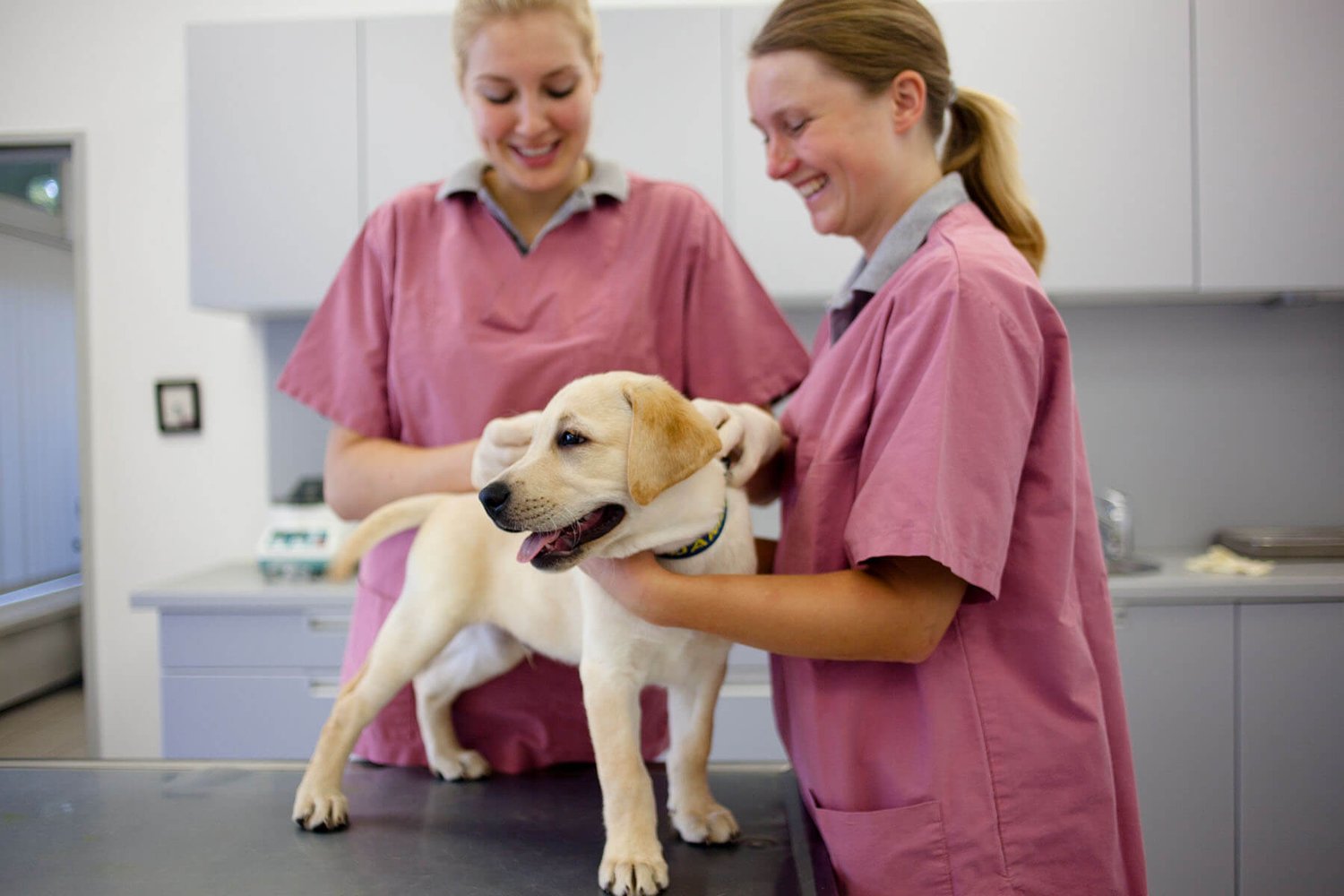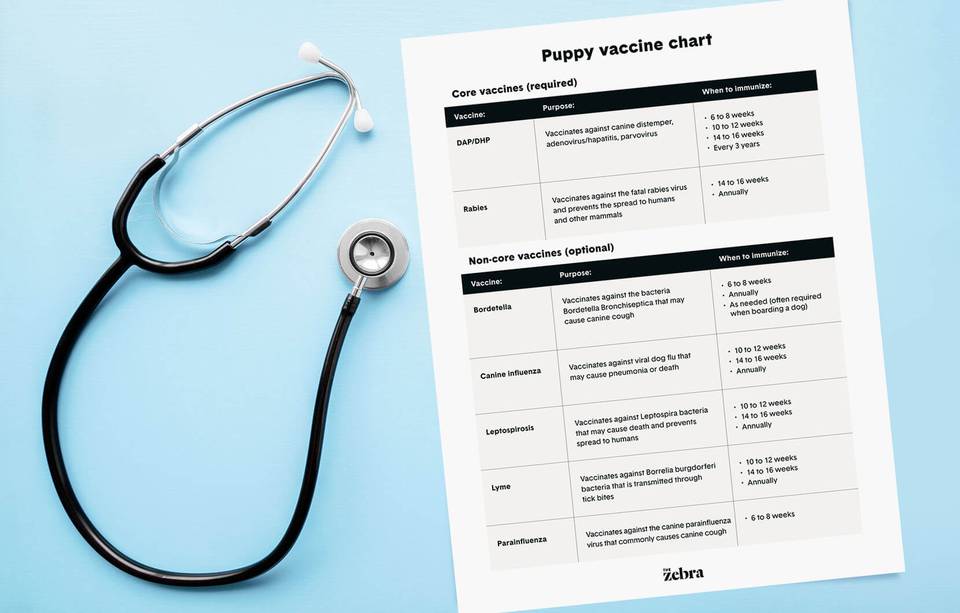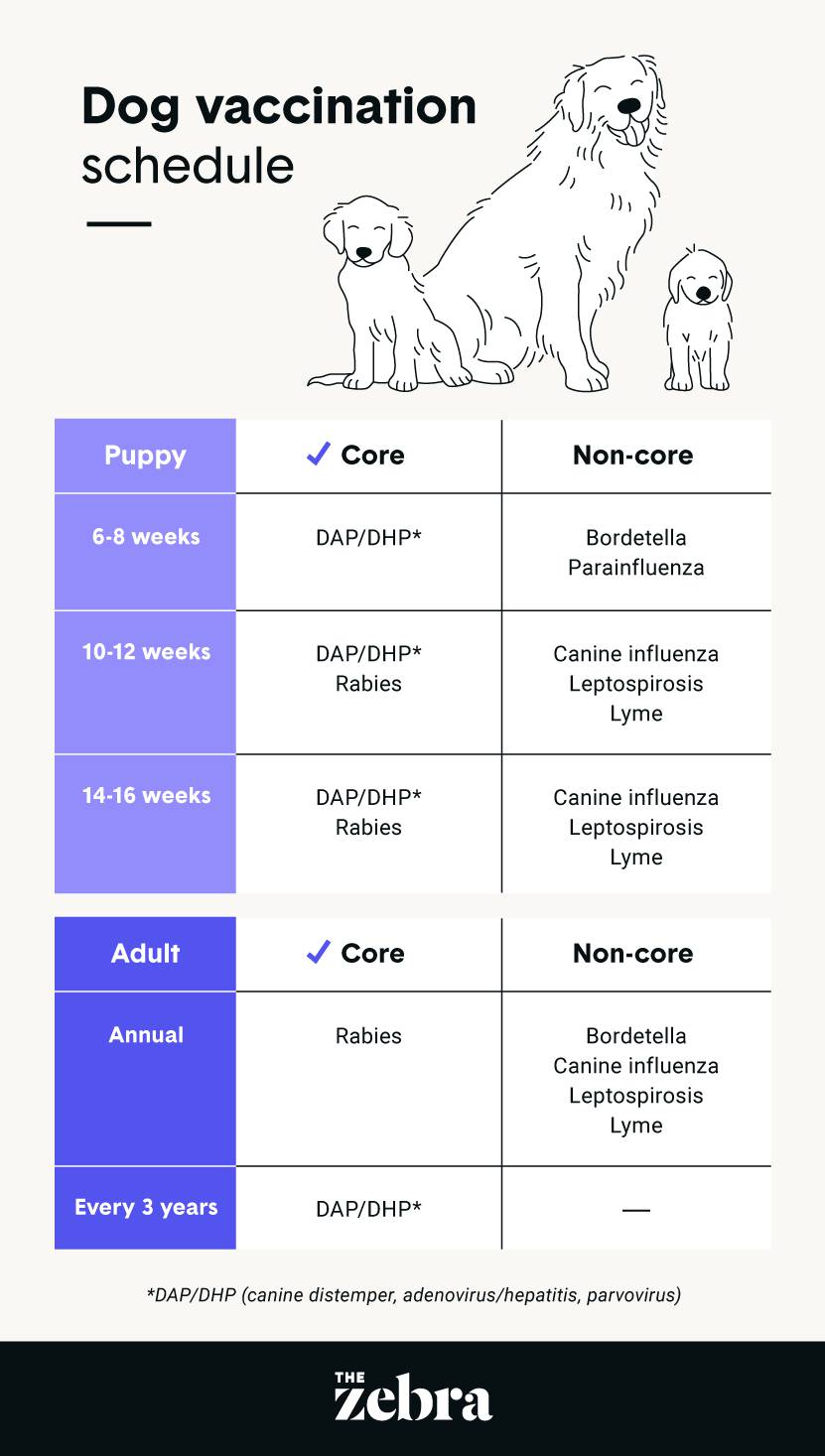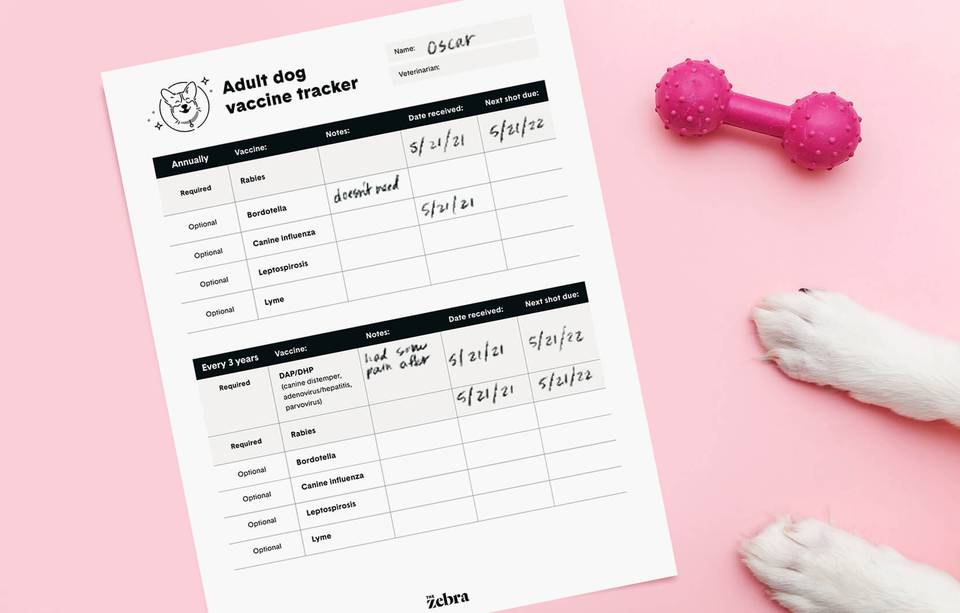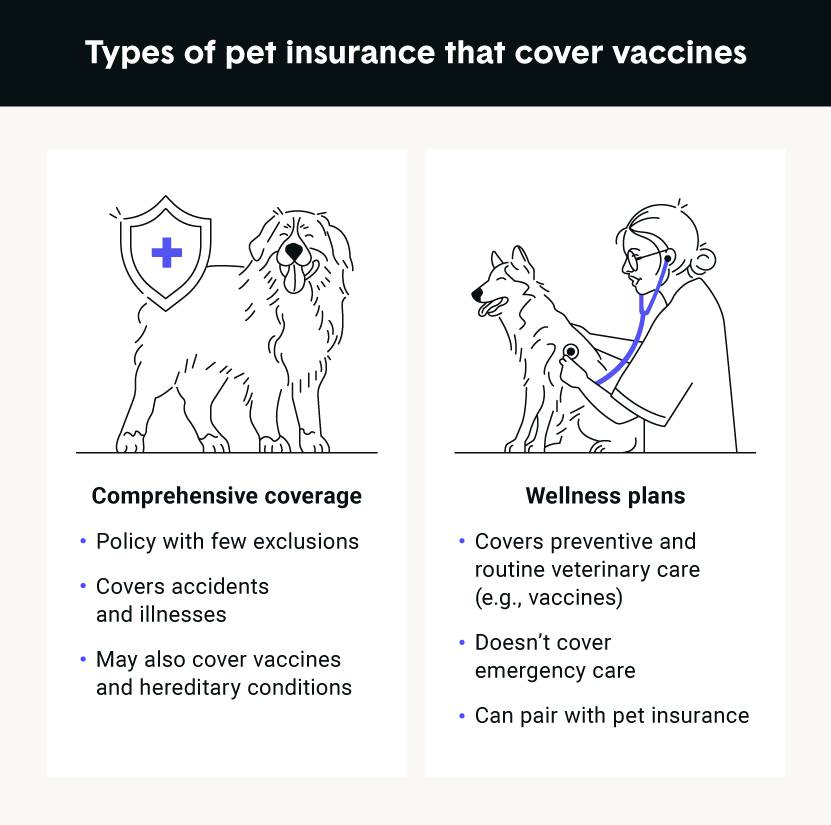Optional vaccines for puppies
Although your puppy is only required to get the core vaccines listed above, they may also need some of the following immunizations based on their risk of exposure, location and lifestyle.
Bordetella
Bordetella bronchiseptica is a bacteria that causes the respiratory disease Bordetella. It is highly contagious and results in the inflammation of the bronchi and trachea. It’s a common cause of canine or kennel cough, and a vaccine is required if you plan to board your dog or take it to a training school or daycare.
Canine parainfluenza virus
Canine parainfluenza virus (CPV) is one of the most common causes of canine cough. Symptoms include coughing, nasal discharge, fever, lack of appetite and loss of energy. Your dog may be at risk for this disease if they’re around other dogs often, and this vaccine can help protect them from this illness. Some examples of when your dog would be exposed are if your dog competes in competitions, boards at a kennel or doggy daycare or visits the dog park or the groomers often.
Leptospirosis
Leptospirosis is a disease that results from Leptospira bacterial infection. In dogs, it can range from mild illness to death, and symptoms include fever, lethargy, vomiting, diarrhea and kidney failure — with or without accompanying liver failure. Dogs can also transmit this disease to humans.
Leptospirosis is transmitted through infected urine, tissues or a bite from another animal. Your dog is at risk of encountering this bacteria if they are swimming or drinking from a lake, river or stream. Also, if they roam around rural areas and have a chance of encountering wild animals or farm animals.
Lyme disease
Lyme disease arises from an infection with Borrelia burgdorferi bacteria, and the bacteria transmits through the bite of infected ticks. Common symptoms are swollen lymph nodes and joints, fatigue, lameness and lack of appetite.
Although a dog can get this disease anywhere in the United States, ticks infected with Lyme disease are more common in the Pacific coast, the upper Midwest and the Northeast of the country. Because ticks may attach to your dog after they brush against tall grasses or brush, this vaccine is important if you tend to explore woods and marshes with your pup.
Canine influenza
Canine influenza, or dog flu, is a respiratory disease that causes symptoms such as a cough, runny nose, fever, or lethargy. In severe cases, it may result in pneumonia and even death. This disease is spread via the respiratory system, through infected sneezes or coughs from other dogs. If your dog is going to be around other dogs at a kennel or just came from a shelter, it may be wise to immunize them for this disease.


